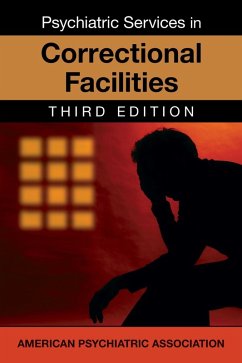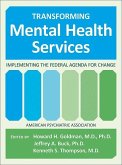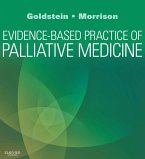The long-awaited report of the APA's Work Group to Revise the APA Guidelines on Psychiatric Services in Correctional Facilities, Psychiatric Services in Correctional Facilities comes at a time of growing incarceration rates, more rigid sentencing policies, harsher sanctions, and tougher public attitudes toward crime. The result is a near-doubling of the incarcerated population since the first report was issued in 1989 and a significant increase of inmates with serious mental health issues. The work group members address the implications of this troubling state of affairs for psychiatrists and other mental health practitioners who diagnose and treat within the correctional environment.
On the basis of extensive input from multiple sources and perspectives, they have developed clear guidelines that equip clinicians to navigate the special challenges they face. This edition has been thoroughly updated and is structured to flow from the foundational principles that govern the delivery of psychiatric care in correctional facilities, to the guidelines for screening, referral, evaluation, treatment, and community reentry planning, to special applications of the principles and guidelines to specific disorders/ syndromes, patient populations, housing locations, treatment modalities, and inmate special needs.
Readers will find the book well written, with clear guidance for the clinician, as well as challenges to think beyond the needs of individual patients to the larger relationship between mental illness and incarceration. ¿ Approximately three of every four incarcerated people with a serious mental illness have a co-occurring substance use disorder, complicating both diagnosis and treatment. The book offers strategies for treating co-occurring disorders and explores the need for evidence-based screening tools. ¿ Because some inmate populations have unique evaluation and treatment needs because of their disorders, demographics, or other characteristics, separate sections are devoted to women; youths in adult correctional facilities; geriatrics; lesbian, gay, bisexual, and transgender patients; veterans; and patients with intellectual and developmental disabilities.¿ New management and programmatic topics include hospice, mental illness and segregation, seclusion and restraint, telepsychiatry, and the spiritual lives of inmates.¿ The appendix is a valuable resource that includes a selection of APA position statements on topics relevant to psychiatric services in correctional settings, such as capital punishment, access to care for transgender and gender-variant individuals, and the adjudication of youths as adults in the criminal justice system.
Correctional psychiatry is an evolving field, and serious questions remain. The work group sees an expanded role for clinicians as physician leaders, managers, and directors, more effectively advocating for their patients and helping to shape optimal care delivery systems that empower patients and support successful transition back to the community. Psychiatric Services in Correctional Facilities provides the current knowledge and professional support clinicians need to meet these challenges.
On the basis of extensive input from multiple sources and perspectives, they have developed clear guidelines that equip clinicians to navigate the special challenges they face. This edition has been thoroughly updated and is structured to flow from the foundational principles that govern the delivery of psychiatric care in correctional facilities, to the guidelines for screening, referral, evaluation, treatment, and community reentry planning, to special applications of the principles and guidelines to specific disorders/ syndromes, patient populations, housing locations, treatment modalities, and inmate special needs.
Readers will find the book well written, with clear guidance for the clinician, as well as challenges to think beyond the needs of individual patients to the larger relationship between mental illness and incarceration. ¿ Approximately three of every four incarcerated people with a serious mental illness have a co-occurring substance use disorder, complicating both diagnosis and treatment. The book offers strategies for treating co-occurring disorders and explores the need for evidence-based screening tools. ¿ Because some inmate populations have unique evaluation and treatment needs because of their disorders, demographics, or other characteristics, separate sections are devoted to women; youths in adult correctional facilities; geriatrics; lesbian, gay, bisexual, and transgender patients; veterans; and patients with intellectual and developmental disabilities.¿ New management and programmatic topics include hospice, mental illness and segregation, seclusion and restraint, telepsychiatry, and the spiritual lives of inmates.¿ The appendix is a valuable resource that includes a selection of APA position statements on topics relevant to psychiatric services in correctional settings, such as capital punishment, access to care for transgender and gender-variant individuals, and the adjudication of youths as adults in the criminal justice system.
Correctional psychiatry is an evolving field, and serious questions remain. The work group sees an expanded role for clinicians as physician leaders, managers, and directors, more effectively advocating for their patients and helping to shape optimal care delivery systems that empower patients and support successful transition back to the community. Psychiatric Services in Correctional Facilities provides the current knowledge and professional support clinicians need to meet these challenges.
Dieser Download kann aus rechtlichen Gründen nur mit Rechnungsadresse in A, D ausgeliefert werden.









